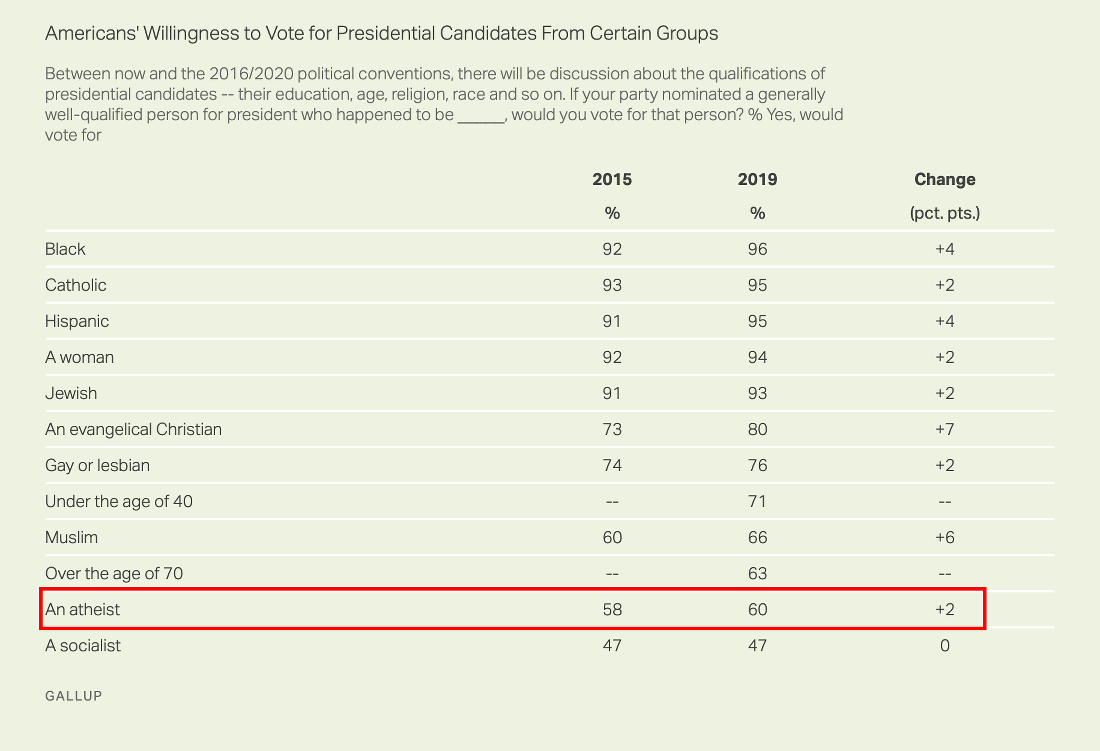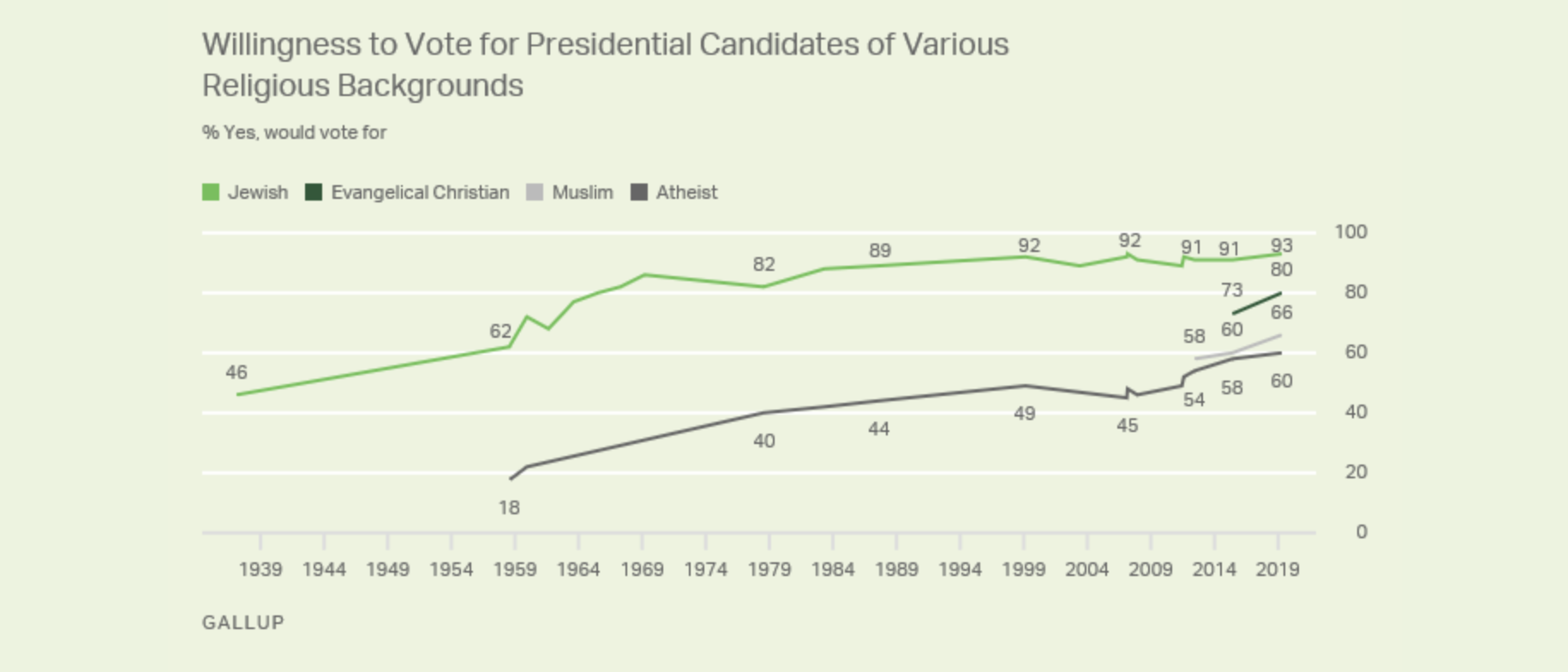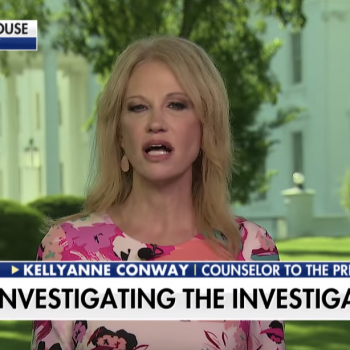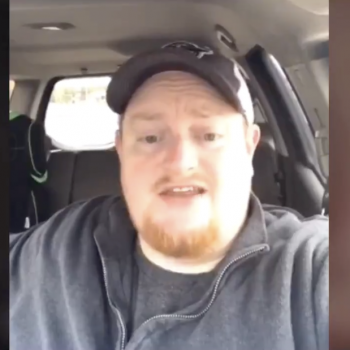Every few years, Gallup asks Americans a version of this question: “If your party nominated a generally well-qualified person for president who happened to be _____, would you vote for that person?”
Just about every time they’ve asked that question, “atheist” has been at the bottom of the list. (Atheists are unelectable! the headlines always say.)
In 2012, there was cause for celebration simply because more than half of those surveyed said they wouldn’t hold atheism against a politician. Then, in 2015, for the first time ever, “atheist” wasn’t the worst trait in a presidential candidate. A “Socialist” performed slightly worse. (Thanks, Bernie Sanders!)
In a poll released today, there’s been no change in the unpopularity of “Socialist” — only 47% of Americans would support that candidate — but “atheist” received another tiny jump. A record 60% of Americans say they would now consider voting for an atheist. It’s still next to last on the list. But it’s clearly becoming less of a stigma.

While just about every category Gallup asked about saw an increase in support — suggesting Americans are becoming comfortable with a more diverse group of candidates — “atheist” saw the smallest increase, an uptick of only 2%. But that may be because we just don’t hear that conversation discussed very much in the media. Without an atheist candidate to talk about, there’s no reason to bring it up.
Eighty percent of U.S. adults would vote for an evangelical Christian for president — up from 73% in 2015. Meanwhile, the percentage of Americans who would vote for a Muslim has grown from 58% in 2012 to 66% today.
Atheist presidential candidates would face more resistance from voters than candidates of other religious backgrounds. But Americans have warmed to the idea of an atheist candidate over the past several decades. The current 60% who would vote for an atheist is more than three times the 18% Gallup recorded in its first measure on atheist candidates in 1958.
We still have a long way to go, but it’s worth acknowledging just how far we’ve come given where we started. That’s a huge change in terms of acceptability.

In case you’re wondering, 71% of Democrats would be fine an atheist candidate, while only 42% of Republicans would say the same thing. When it comes to the age breakdown, 72% of all voters under 34 could support an atheist while that number drops to 54% for those older than 55. Also, the more formal education you have, the more likely you are to support the atheist.
The bottom line?
Religious identification may be becoming less relevant in national politics, as most Americans are open to voting for all groups Gallup asks about. If these trends continue, evangelicals, Muslims and atheists may one day find their electability on par with that of Catholics and Jews — both of which were once much more contentious for a presidential candidate. Gallup’s first poll on the question in 1937, for example, found that 47% of Americans would vote for a Jewish candidate — a far cry from the 93% today.
That’s good news for atheists, even if we won’t see one on a major party’s presidential ticket in 2020. Remember: There are dozens of openly non-religious politicians at the state level. Once some of them trickle up into national politics, and people just get used to the idea of an atheist politician, it’ll become even less of a concern. Sanders shows how you can change the perception of Socialists within a single presidential cycle. It may just take a formidable openly atheist candidate to do the same for us.




It’s Moving Day for the Friendly ..."
It’s Moving Day for the Friendly ..."
It’s Moving Day for the Friendly ..."
It’s Moving Day for the Friendly ..."